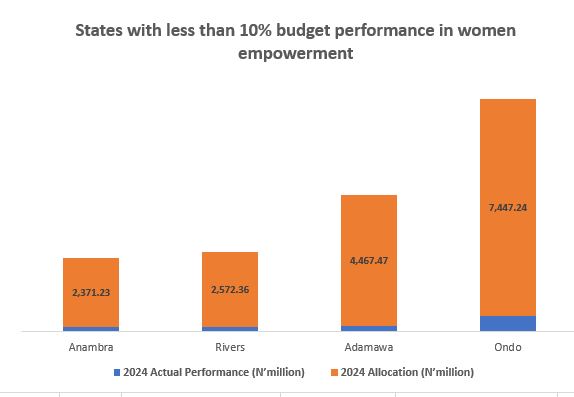Godwin Emefiele, new governor of the Central Bank of Nigeria (CBN), said yesterday that his vision was to run a “people-centred” central bank that would spur employment generation and support real sector growth, as he signalled that policymakers might begin to cut down interest rates.
He also announced that his five-year regime would pursue a zero-tolerance policy on fraudulent borrowers as he hoped to push for the establishment of commercial courts that would see to quick adjudication on loan and related offences.¬Ý
At his maiden World Press Conference yesterday in Abuja, Emefiele announced the cancellation of all bank fees on deposits while committing to the pursuance of a gradual reduction in the current high interest rates which, he said, had become a perverse incentive for commercial banks to simply buy virtually risk-free government bonds rather than lend to the real sector.¬Ý
He also announced a commitment to reviewing the current practice whereby all fees associated with limits on withdrawals solely accrued to banks, saying his target was to possibly align rates with what is obtainable in other emerging markets, particularly Malaysia, South Africa, Brazil, India, China and Turkey.
The new governor also announced that the CBN would design a programme for citizens who need as low as N50,000 without collaterals but through registered and accredited local cooperatives. He said the apex bank would encourage venture capital companies and business angels to fund SMEs, even as he invited his former colleagues at the Bankers’ Committee to play more active role in supporting SMEs.
The new CBN governor also announced that to enhance financial access and reduce borrower cost of credit, the CBN would pursue policies targeted at making Nigeria’s treasury-bill rates more comparable with other emerging markets and, by extension, pursue a reduction in both deposit and lending rates.
To show his regime’s commitment to development finance, Emefiele told journalists that the CBN would also begin to include the unemployment rate as one of the key variables considered for its monetary policy decisions.
Also in his fairly lengthy speech, the new governor floored calls to devalue the naira with an argument that for a country like Nigeria, which is largely import-dependent, a systemic depreciation of the local currency now would spell chaos for the economy as it would literally translate to considerable inflationary pressure with attendant effect on macroeconomic stability.¬Ý
But he assured that the central bank under his leadership would continue to focus on maintaining exchange rate stability and preserving the value of the domestic currency through a float regime in the management of the exchange rate, which would allow the bank to intervene when necessary to offset pressures on the exchange rate.¬Ý
To support this strategy, Emefiele assured that the apex bank would strive to build up and maintain a healthy external reserves position and ensure external balance.
One of the strategies, according to him, would be to cut down on import bills through various initiatives which would also help boost output both in oil and other sectors, while checking current crude losses. All these strategies, he said, would ensure that more funds come into the government coffers.
To this end, he said the CBN would support ongoing initiatives at the ports and secure pipelines that are being vandalised daily, as well as work aggressively with relevant stakeholders to shore up reserves.
He also said the CBN would support the Ministry of Petroleum Resources by looking at investment incentives in refining and promoting investment in the construction of much-needed gas pipelines.¬Ý
“We will also support the establishment of small-scale modular refineries that can serve some of our domestic markets. We will consider giving priority to the main arteries to the gas-fired power plants,” the governor stressed.
Rolling out his plans for the financial sector, Emefiele said his core vision was to effectively manage potential threats to financial stability and create a strong governance regime conducive for financial intermediation, innovative finance and inclusiveness.¬Ý
He committed to enhancing the apex bank’s supervisory purview over the banking system as well as strengthening macro-prudential regulation by improving supervisory diligence, ethical standards and highest level of professionalism in carrying out on- and off-site supervision activities.
He said risk-based supervision (RBS) mechanism of Nigerian banks would be strengthened to ensure overall health and banking system stability.¬Ý
To that end, he announced that banks would be required to proffer remedial actions where weaknesses are observed in RBS examination reports so as to avoid further build-up of NPLs, adding, however, that where banks proffer inadequate remedies, the CBN would advance its own solutions and insist on compliance.
He particularly noted that in light of the size of the economy following the rebased GDP, the trigger thresholds from a macro-prudential perspective were no longer adequate. In due course, the CBN would consider and announce measures to effectively address this anomaly, he said.
One strong point of the governor was to pursue a zero-tolerance policy on fraudulent borrowers, adding that the apex bank would collaborate with commercial banks to significantly improve the credit culture in the Nigerian banking system.¬Ý
“The CBN’s focus would be directed at serial debtors who access loans from different banks and default on all of them even when they have the means to pay. Going forward, the CBN will work towards reducing the effect of information asymmetry in the credit market,” he pledged.
Emefiele announced, in line with his vision of a new focus on development finance, a business approach of funding Small and Medium Enterprises (SMEs) different from the present commercial approach.
He also announced how the CBN under his leadership would support the agricultural, power, petroleum and health sectors, saying the apex bank planned to tackle the myriad of issues facing the health sector, which had led to a huge bill of foreign exchange use for medical travels overseas.
He said the CBN intended to play a facilitating role by unlocking the potentials that exist for the private sector to invest at various points along the healthcare value chain, including hospital services, health insurance, pharmaceuticals, supply chain, and financing.
This window of opportunity has already led the private sector to establish an institutional platform for health, known as the Private Sector Health Alliance of Nigeria (PHN), with the support of the government.
“The CBN will explore opportunities for partnering with the PHN to galvanise the private sector into playing a more active role in the health sector. The bank will maintain a keen interest in supporting the development of institutions, create an enabling environment to trigger private sector investment and curb the growing trend of medical tourism,” the governor said.
Onyinye Nwachukwu








